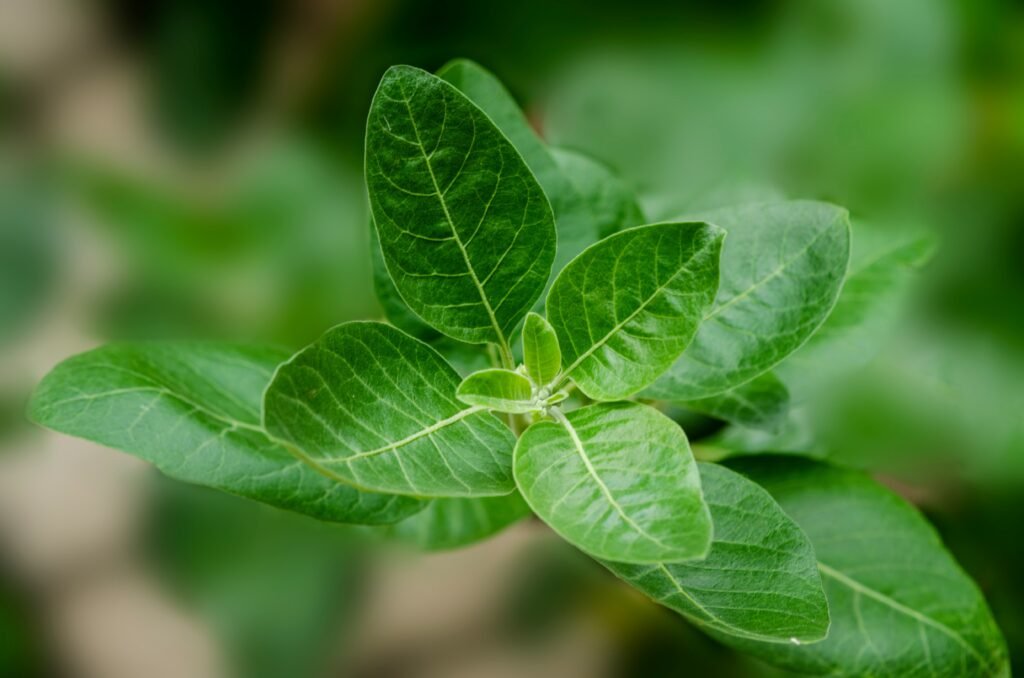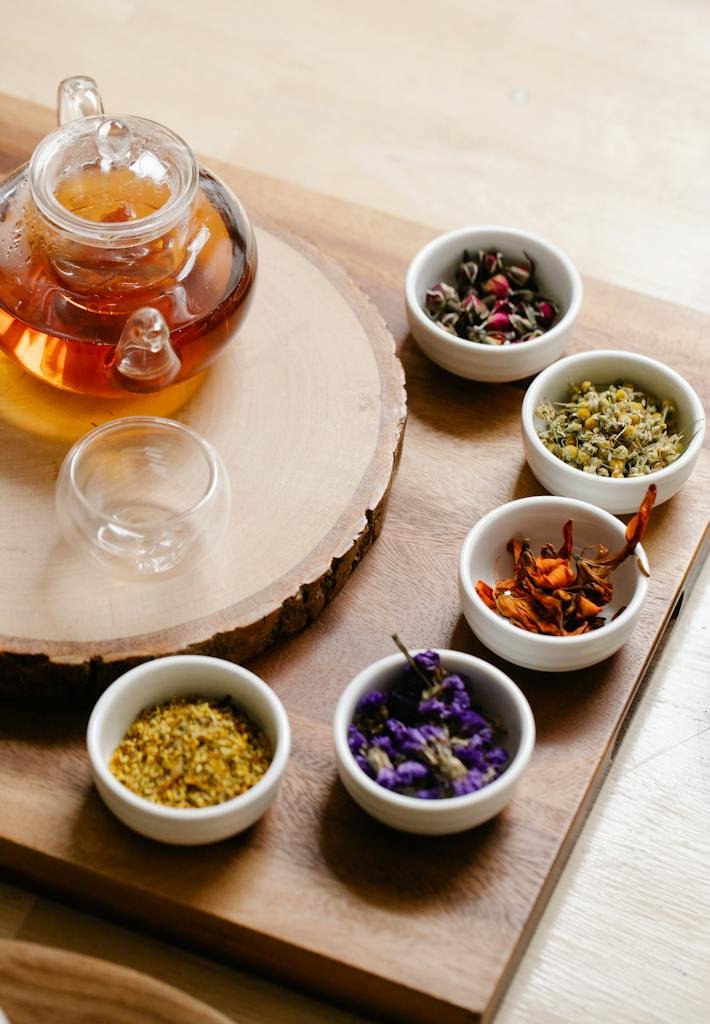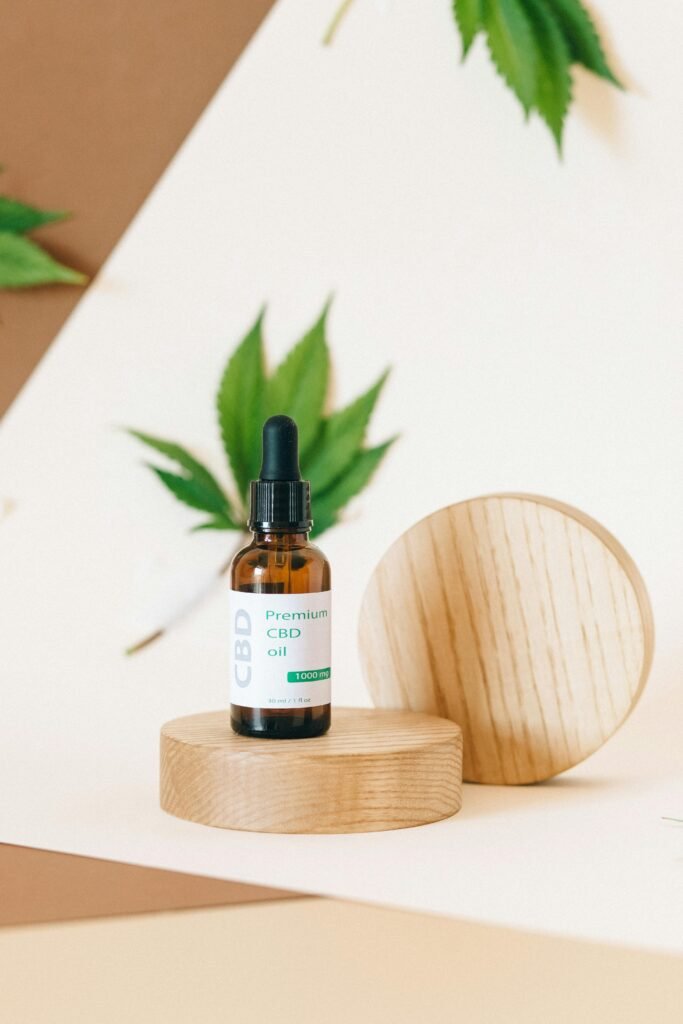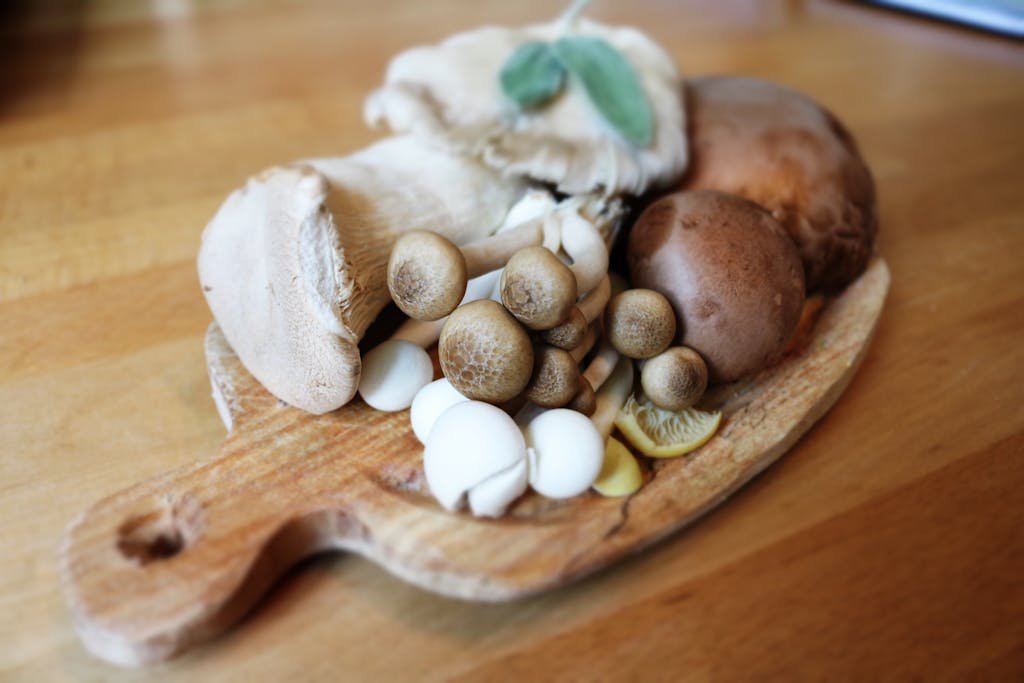Discover the Life-Changing Benefits of CBD vs Ashwagandha
In the pursuit of optimum health, rejuvenation, and overall wellness, it is common to find ourselves scrutinizing an assortment of organic health supplements, in hopes of discovering the most suitable one that addresses our individual needs. Recently, the wellness industry has been buzzing about two particular supplements – Cannabidiol, popularly known as CBD, and Ashwagandha. The question is – how do they differ from one another? And more importantly, which of these two is the perfect match for your wellness journey? To answer these questions, it is crucial to dive deeper and explore the various benefits and distinctions of both CBD and Ashwagandha.

Uplevel your Health with Ashwagandha
The surge in popularity of CBD and Ashwagandha can largely be attributed to a growing interest in natural wellness and holistic health practices. As more people seek alternatives to conventional medicines, these two powerful substances have emerged as promising options due to their varied and significant health benefits.
For CBD, its rise in popularity is undoubtedly connected to its remarkable versatility. It has shown promise in alleviating symptoms of a wide range of conditions, from anxiety and stress to chronic pain and inflammation, to even some types of epilepsy. This wide-ranging applicability, coupled with ongoing research into additional potential benefits, has catapulted CBD into the mainstream wellness sphere.
Ashwagandha, although less known in Western cultures, has seen a similar surge in interest. With roots deeply embedded in Ayurvedic medicine, it has a long-standing history of improving physical and mental health. Modern science is catching up with traditional knowledge, highlighting Ashwagandha’s benefits such as stress relief, antioxidant properties, and immune system support. This has sparked renewed interest in this ancient herb.
Social media and digital platforms have further amplified the visibility of these supplements. Influencers, wellness gurus, and even ordinary people share their positive experiences with CBD and Ashwagandha, contributing to their rising status as must-have wellness supplements.
As awareness grows, so too does the popularity of these natural powerhouses, with more and more individuals exploring their potential for enhancing overall well-being.
What are CBD and Ashwagandha?

CBD, short for Cannabidiol, is a fascinating compound that naturally exists within the Cannabis Sativa plant. It stands out from its peers due to its non-psychoactive nature, meaning it doesn’t induce the mind-altering “high” commonly associated with cannabis use. Instead, CBD is heralded for its therapeutic properties, offering a myriad of potential health benefits without the associated ‘high.’
On the other side of the coin is Ashwagandha, a venerable powerhouse in the realm of natural wellness. This adaptogenic herb may not be as globally recognized as CBD, but its roots run deep in the rich soil of Ayurvedic medicine, where it’s been cultivated for its potent health-boosting effects for centuries. Known by many names including Indian Ginseng and Winter Cherry, the Ashwagandha supplement has a reputation for its balancing impact on the body and mind. It’s praised for its potential to rejuvenate and restore, providing a natural path to improved wellness.
Both CBD and Ashwagandha may seem like new kids on the block in the world of wellness supplements, but they bring with them an ancient history and a promising future. They represent the old and the new, the traditional and the cutting-edge, blending together to offer natural alternatives in our pursuit of holistic health and well-being.
Origins of CBD and Ashwagandha
Unearthing the roots of these two wellness powerhouses takes us on a journey to two distinct parts of the world, each with their unique relationship to plant-based healing. CBD, an exciting compound extracted from the Cannabis Sativa plant, has its origins traced back to the heartland of Central Asia. Over the centuries, the cultivation of this therapeutic plant has spread across the globe, transcending geographical borders and cultural differences. This universal appeal is testament to CBD’s unique healing properties and its potential to alleviate a wide spectrum of health issues.

On a different continent and an entirely different tradition of healing, we find Ashwagandha, a stalwart of Ayurvedic medicine. This revered herb, known as Indian Ginseng or Winter Cherry, has been cultivated on the fertile lands of North Africa and India for millennia. For over 3000 years, Ashwagandha has been a cornerstone of Ayurvedic practice, where it’s been utilized to promote both physical and mental health.
CBD and Ashwagandha may seem new in the ever-evolving wellness landscape, but their roots run deep into the soil of ancient traditions and healing practices. Their respective journeys from the ancient fields of Asia and Africa to the modern wellness arena are a testament to the enduring value of plant-based remedies and the growing shift toward natural wellness solutions.
Improved Sleep Quality
Seeking a night of restful slumber? You might want to explore the sleep-enhancing potential of CBD and Ashwagandha. CBD interacts with the endocannabinoid system, influencing the body’s sleep-wake cycle. It can potentially encourage deeper, more restful sleep by reducing symptoms of common sleep disruptors, like anxiety and chronic pain. Meanwhile, Ashwagandha steps in with its adaptogenic properties, reducing cortisol levels, and promoting a sense of calm. This relaxation can lead to improved sleep quality, helping you wake up refreshed and rejuvenated. The harmonious combination of deep relaxation and reduced anxiety that both supplements can offer may be just the ticket to your good night’s sleep. As we journey towards better sleep, remember to listen to your body, adjusting doses and routines for optimal results.
Benefits for Pain Relief

Are you in search of natural solutions to mitigate chronic pain? If so, you’ll be pleasantly surprised to learn about the pain-relieving properties of both CBD and Ashwagandha. For CBD, its interaction with our body’s endocannabinoid system plays a significant role. This interaction can help regulate pain, creating a soothing effect that could potentially offer a reprieve from aches and discomfort. What makes CBD even more appealing is its versatility, making it a potential aid for different types of pain, including chronic pain related to inflammation.
On the other side, Ashwagandha has its unique method of easing pain. The secret lies in its active compounds called withanolides, which are believed to help reduce inflammation and pain. This traditional herb’s usage in Ayurvedic medicine provides a historical precedent for its role in pain relief.
Imagine the freedom of moving through your day with less pain, more comfort, and an enhanced quality of life. That’s the potential that these natural powerhouses can bring to the table. While they certainly don’t promise an instant cure, they do offer an alternative path that’s worth exploring in your quest for natural and effective pain relief. As with any wellness journey, remember that everyone’s body is different, and what works for one person may not work for another. It’s about finding what helps you feel your best, and CBD and Ashwagandha could potentially be a part of that journey.
Relief for Anxiety and Stress
Anxiety and stress are all too common in our fast-paced world. But what if the path to tranquility lies within nature itself? This is where the soothing potential of CBD and Ashwagandha come into play.

Imagine CBD as your personal mindfulness coach, encouraging balance and calmness in your body. It does this by interacting with serotonin receptors in the brain, which play a critical role in managing mood and social behavior. This interaction could potentially offer a soothing balm for frayed nerves, helping to ease anxiety and stress.
Meanwhile, Ashwagandha steps into the role of a seasoned stress manager. With adaptogenic properties, this ancient herb is known for helping the body navigate life’s daily stressors more effectively. The science behind this lies in Ashwagandha’s ability to lower cortisol levels, the body’s main stress hormone. Think of it as bringing balance back to a teetering seesaw, restoring your body to a state of harmony and resilience.
While our daily struggles with anxiety and stress may be a shared human experience, our individual responses to natural remedies like CBD and Ashwagandha can vary. Exploring these supplements could be a step towards finding your personal sanctuary of calm within the storm. As always, be sure to seek advice from a healthcare professional to navigate your wellness journey safely and effectively. Remember, your journey towards tranquility is just that – yours. Own it, embrace it, and let nature lend a helping hand along the way.
Anti-Inflammatory Properties
Inflammation: it’s your body’s natural defense mechanism, but when it becomes chronic, it can lead to various health problems. This is where CBD and Ashwagandha may step in as your natural allies in the fight against inflammation. Let’s delve into the science behind their anti-inflammatory superpowers.
CBD’s secret weapon lies in its interaction with the endocannabinoid system, a complex body system that plays a crucial role in maintaining homeostasis. By interacting with this system, CBD can help manage the inflammatory response, potentially soothing conditions caused by chronic inflammation.

Now, let’s switch gears and explore Ashwagandha. This time-honored herb is not just about stress relief; it also moonlights as an inflammation warrior. Rooted in Ayurvedic practices, Ashwagandha has been traditionally used to curb inflammation and bolster the immune system. It’s like adding a protective shield to your body’s defense mechanism.
Harnessing the anti-inflammatory properties of both CBD and Ashwagandha could be an excellent addition to your wellness journey, particularly if you’re battling with chronic inflammation. As always, it’s essential to remember that everyone’s body is different, and what works wonders for one person may not have the same effect on another. That’s the beauty of the wellness journey – it’s uniquely yours. Here’s to finding the natural solutions that best support your well-being!
Treatment of Epilepsy
Navigating the world of epilepsy treatment can be complex, but CBD has emerged as a beacon of hope in this realm. The FDA’s stamp of approval for the use of CBD in Epidiolex, a drug specifically designed to treat epilepsy, is a significant milestone. This illustrates the potential of CBD as a treatment option, adding a promising tool to the arsenal of epilepsy management strategies. It’s an exciting development that shines a spotlight on the power of plant-based remedies.
However, when it comes to Ashwagandha, the waters are a bit murkier. Traditional medicine has often used this herb to invoke a sense of relaxation and calmness in the nervous system, factors that could potentially be beneficial in managing epilepsy. Yet, science demands more than anecdotal evidence. As such, more comprehensive research is needed to establish Ashwagandha’s efficacy as an epilepsy treatment.
Despite these exciting developments, it’s important to remember that no supplement should replace a comprehensive treatment plan guided by a healthcare professional. As we venture deeper into the realm of natural remedies for epilepsy, always ensure to make informed decisions based on professional medical advice. It’s the best way to navigate your health journey safely and effectively.
Potential Side Effects
It’s crucial to remember that while the natural realm of CBD and Ashwagandha offers a plethora of wellness benefits, there may also be instances of side effects. These effects are typically mild and don’t occur in everyone, but it’s worth keeping them in mind as you explore these supplements.
For CBD, some people may experience sensations of tiredness, fluctuations in their appetite, or the occasional bout of diarrhea. On the other hand, Ashwagandha, although generally safe, can sometimes lead to a slight upset stomach or diarrhea. It might also affect your blood sugar levels, so those with diabetes should be mindful.
Navigating the world of natural supplements is a personal journey and our bodies often respond in their unique ways. As we incorporate these wellness enhancers into our routine, it’s important to listen to our bodies and adjust accordingly.

Always remember, your wellness journey is about balance and finding what makes you feel your best. It’s about embracing the benefits while staying mindful of any potential side effects. As always, consulting a healthcare professional is an important step before introducing any new supplement into your regimen. Their expert guidance can help you navigate potential side effects and ensure a smooth and safe wellness journey.
CBD and Ashwagandha use during pregnancy or while breastfeeding
It is generally recommended that pregnant or breastfeeding women avoid using CBD or ashwagandha, as there is limited research on the safety of these substances during pregnancy and lactation. CBD may affect the developing fetus or nursing infant, and ashwagandha may have uterine-stimulating effects. It is always best to consult with a healthcare provider before using any new supplements or medicines during pregnancy or while breastfeeding.
Commonly asked questions:
Are there any potential negative interactions between CBD, ashwagandha, and other medications or supplements?
Recent studies have emphasized the need for care when integrating natural health alternatives like Cannabidiol (CBD) and ashwagandha, also known as Indian ginseng or withania somnifera, alongside conventional pharmaceuticals. The concern arises from these substances’ notable impacts on the endocannabinoid system and cortisol levels, which play crucial roles in managing anxiety and inflammation. It’s particularly critical for individuals already undergoing treatment for stress-related conditions or long-term inflammation to be vigilant.
Can CBD and ashwagandha be taken together for increased effectiveness?
A burning question for many is whether CBD and Ashwagandha can be taken together for increased effectiveness. The answer appears promising. Both these natural wonders have unique strengths; CBD shines in easing physical ailments like chronic pain and inflammation, while Ashwagandha is a star performer in stress and anxiety relief. Combining these strengths could potentially create a synergistic effect, heightening their individual benefits.
However, it’s crucial to remember that this combination isn’t a guaranteed win for everyone. Our bodies may respond differently to this powerful duo, and it’s important to monitor any changes carefully. It’s also essential to consult with a healthcare professional before embarking on a new wellness regimen, especially when combining supplements.
This expert advice can help ensure a safe and effective exploration of CBD and Ashwagandha taken together. The natural world offers an abundance of wellness enhancers, and sometimes, a powerful pairing like CBD and Ashwagandha might just be the ticket to your enhanced well-being.
Are there any legal differences between using CBD and ashwagandha in certain countries or states?
Yes, there can be. For example, CBD, known for its potential effects on the endocannabinoid system and stress relief, is subject to various regulations globally due to its association with cannabis, while ashwagandha, a cornerstone of ayurvedic medicine, is largely unregulated.

Comparing Dosages and Consumption Methods
As you embark on the journey of wellness with CBD and Ashwagandha, one of the essential elements to consider is the method of consumption and the correct dosage.
The versatility of CBD allows it to be consumed in a variety of forms, with each offering its unique advantages. You can choose to incorporate CBD into your wellness routine as oils that can be added to your food or drink, capsules for a more controlled dosage, or even topical creams for localized relief. The dosage can vary greatly, dictated by individual health conditions and the desired therapeutic effects.
On the other hand, Ashwagandha, with its roots in Ayurvedic medicine, is typically consumed in capsules or powdered form. The powdered form can be mixed into warm milk or water, a traditional approach that aligns with its ancient heritage.
The usual daily dosage ranges between 300-500mg. However, it’s crucial to remember that the ideal dosage can vary depending on factors such as age, current health condition, and the specific issue you’re addressing.
In essence, both CBD and Ashwagandha offer a range of consumption methods and dosages to suit your individual needs and preferences. The key is to find the method and dosage that aligns best with your lifestyle, comfort level, and health objectives. This way, you can reap the optimal benefits these natural powerhouses have to offer.
Remember, every wellness journey is unique, and yours should be tailor-made to you. Always consult a healthcare professional to help guide you on this path.
Key Factors to Consider

Deciding between CBD and Ashwagandha, or incorporating both into your wellness routine, requires careful consideration. This isn’t a one-size-fits-all situation; it’s about finding what resonates with you and your unique needs. Begin by assessing your personal health objectives.
What do you hope to achieve? Are you seeking relief from the effects of chronic stress, anxiety, chronic pain, or inflammation? Or perhaps you’re exploring ways to enhance your overall well-being? Understanding your goals will help guide your decision.
Next, consider your lifestyle and preferences. Would you prefer a supplement that can be easily mixed into your meals, like CBD oil, or are you more comfortable with traditional capsules or powders, like Ashwagandha?
Then, factor in your body’s reaction. Remember, not everyone responds the same way to these supplements. It’s essential to stay mindful of potential side effects and adjust your usage accordingly.
Finally, remember the golden rule: always consult a healthcare professional. They can provide invaluable guidance, helping you navigate your wellness journey safely and effectively.
Whether you choose CBD, Ashwagandha, or a combination of both, remember that these natural powerhouses are just one part of a holistic approach to wellness. Your wellness journey is uniquely yours, so embrace it, own it, and let these ancient yet modern wonders support you along the way.






